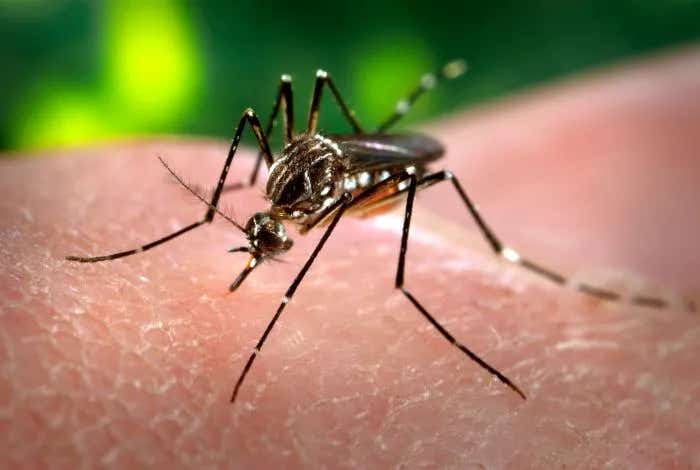Study finds surprising links between regular exercise, your liver and brain health
Exercise improves brain function even when liver ketone production is low, offering hope in the fight against cognitive decline.

Endurance exercise boosts brain health even without liver ketone support, new research shows. (CREDIT: Shutterstock)
When thinking about the benefits of exercise, most people picture stronger muscles, a healthier heart, or weight loss. But there's another powerful benefit you might not see — a sharper mind. New research shows that regular endurance exercise doesn’t just help your body; it also protects your brain, even when one of the brain's most important fuel sources is missing.
The Link Between Liver, Ketones, and Brain Power
Your brain needs a lot of energy to function well. Most of that energy comes from glucose — a type of sugar. But when glucose runs low, especially during long periods without food or intense exercise, the liver steps in. It makes molecules called ketones, which act as a backup fuel for your brain.
These ketones do more than just power neurons. They also help with learning, memory, and overall brain health. So what happens if your liver can’t make enough ketones? That’s the question researchers from the University of Missouri Columbia set out to answer — and the results surprised them.
In the study, scientists blocked the production of ketones in healthy young female rats. They did this by reducing a liver enzyme called HMGCS2. This enzyme starts the process of making ketones. Then, the rats either performed a single session of running or trained on a treadmill five days a week for four weeks.
Ketone Deficiency Harms Brain Function
The rats with lower levels of the HMGCS2 enzyme couldn’t produce enough ketones after exercise. As a result, the level of ketones in their blood stayed low, even after working out.
This lack of ketones had a big effect on the brain. After just one exercise session, the frontal cortex — the area responsible for decision-making and memory — showed fewer signs of healthy mitochondrial activity. Mitochondria are like power plants in cells. When they don’t work well, cells lose energy and begin to struggle.
Related Stories
In the rats with impaired ketone production, researchers also saw a sharp drop in how well their brain mitochondria worked. After chronic exercise, the brain’s ability to generate energy dropped by more than half in some cases.
But energy problems weren’t the only issue. The rats also performed worse on memory tests. Their spatial memory — the ability to remember and navigate places — was weaker. Proteins tied to synaptic plasticity, the brain’s way of learning and adapting, were also lower.
Exercise Still Protects the Brain
Then came the surprise. Even though the rats couldn’t make enough ketones, the ones that exercised regularly still had better brain function than those that didn’t.
Exercise seemed to make up for the missing ketones. Rats that ran on the treadmill for four weeks showed stronger memory and more signs of brain plasticity. Their mitochondrial function also improved, despite the liver’s inability to create enough ketones.
The scientists expected that without ketones, exercise would fail to help. But instead, they found that exercise had enough brain-boosting effects on its own to overcome the ketone shortage.
“Going into the study, we thought that with fewer ketones and the cognitive impairments that causes, exercise may not be able to overcome that impairment,” said postdoctoral fellow Taylor Kelty. “But it seems like exercise is so powerful that there are other mechanisms going on in the brain that allow it to circumvent those impairments and still receive the benefits from exercise.”
A Closer Look at the Liver-Brain Connection
This research highlights how deeply connected your body’s systems are. Even though the liver and the brain are far apart, what happens in one can strongly affect the other. If the liver can’t do its job properly — like producing ketones — the brain can suffer. That connection matters even more when you consider conditions that damage the liver. People with severe liver disease often struggle with memory and thinking. This new study may help explain why.
“If ketone production in the liver is disrupted, it could be a potential cause of cognitive decline, ultimately leading to conditions like dementia,” Kelty said. This emerging field — often called liver-brain research — is gaining attention. It shows how liver problems could raise the risk of disorders like Alzheimer’s disease.
With the number of Americans expected to develop Alzheimer’s more than doubling by 2060, understanding the liver’s role in brain health could lead to new ways to prevent memory loss.
Exercise as a Tool for Brain Health
So, what does all this mean for you? First, it confirms what many experts have believed: regular physical activity helps your brain. But now, researchers understand more about how that happens.
Even when the liver can’t produce enough ketones, exercise still improves brain power. That means physical activity works through more than one path. It doesn’t rely on a single chemical or molecule. Instead, exercise triggers a range of helpful changes — from better blood flow to increased brain cell repair.
“This study highlights how exercise benefits the body in a multitude of ways, even when we don’t fully understand all the molecular mechanisms involved,” said Professor R. Scott Rector, who co-led the research. “Even when we remove a single pathway, exercise is doing so many other things that it can help mitigate those deficiencies.”
The research is also good news for people with liver conditions. While liver disease can reduce ketone levels and possibly lead to memory problems, exercise may help protect the brain even when the liver can’t.
“There’s so much we’re still uncovering, and with all the state-of-the-art resources and interdisciplinary collaborations at Mizzou, it’s exciting to think about where this research might take us next,” Kelty added. “Exercise could be a key piece of the puzzle in preserving brain health as we age.”
The Future of Brain Health Research
The researchers hope their work will guide future studies that explore how liver problems affect the brain and how exercise might help people stay mentally sharp into old age. Rector, who has spent more than 20 years doing research, said the support from his university and other organizations has made studies like this one possible. “We hope our work will ultimately help a lot of people in the future,” he said.
As science uncovers more about how different parts of the body influence brain health, one message is already clear: if you want to keep your mind strong, keep moving. Regular endurance exercise could be one of the best tools you have — even when the odds are stacked against you.
Research findings are available online in the Journal of Physiology.
Note: The article above provided above by The Brighter Side of News.
Like these kind of feel good stories? Get The Brighter Side of News' newsletter.



